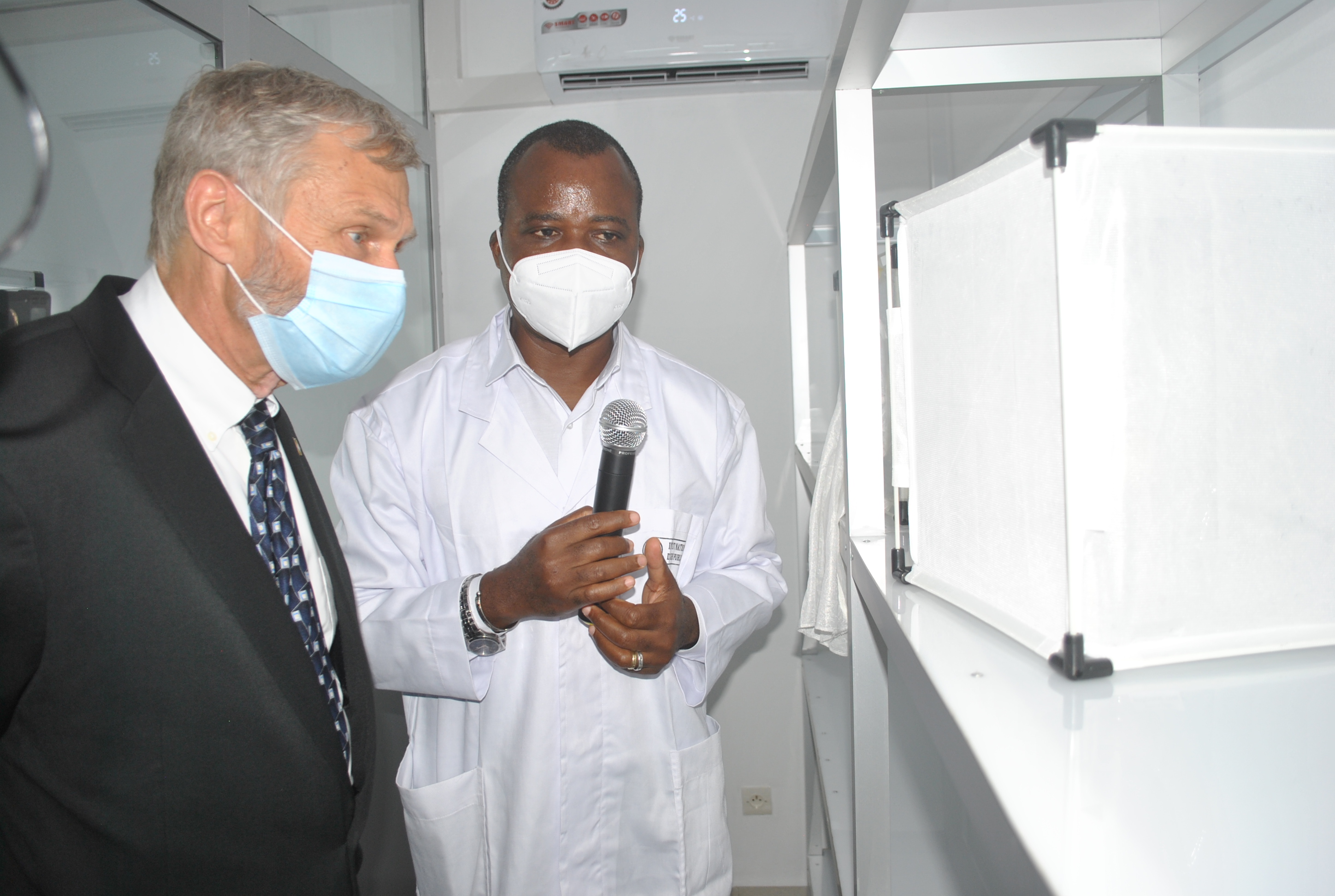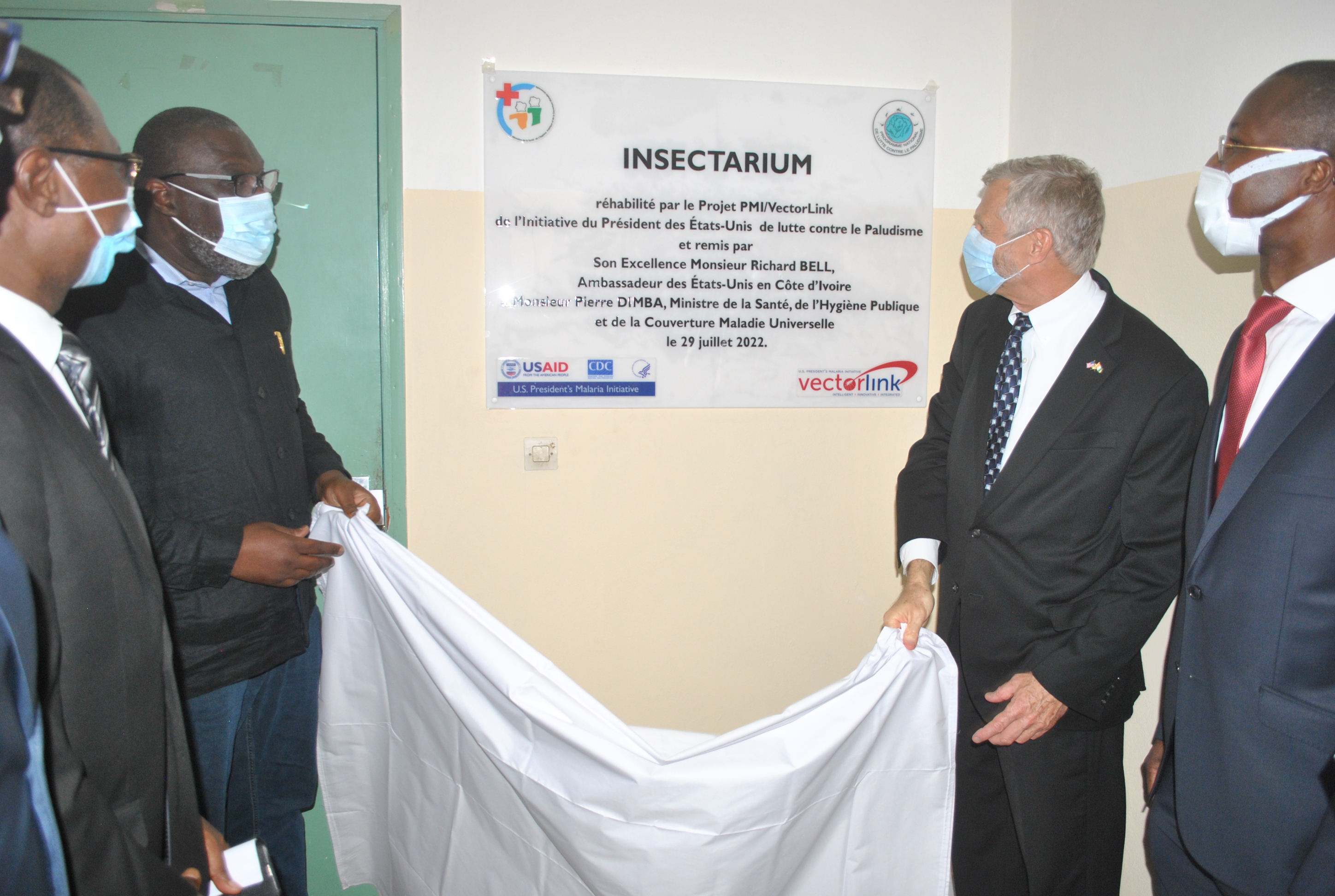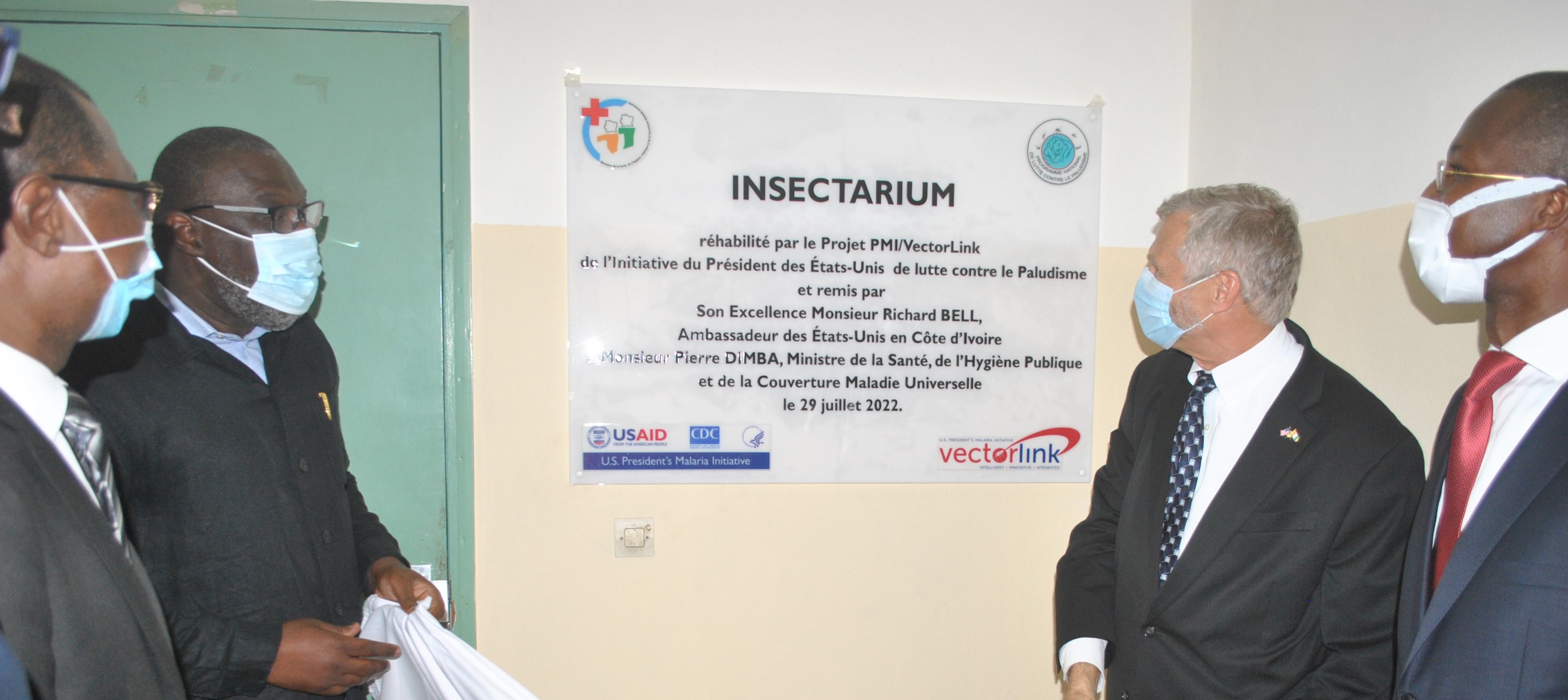Malaria is endemic in Côte d’Ivoire, where it is the leading cause of death among children under age five, and the primary reason for all medical consultations and hospitalizations. Understanding how to best control the mosquitoes that carry the malaria parasite is critical to reducing the country’s malaria burden. The opening of a new insectary at the Institut National d’Hygiene Publique (National Institute of Public Health, or INHP) is a critical step in ensuring that Côte d’Ivoire is well equipped to study mosquito behaviors, respond to malaria outbreaks, and move forward in the fight against malaria.

The U.S. President’s Malaria Initiative (PMI) has been working with the Government of Côte d’Ivoire since 2017 on malaria vector control. Through the PMI VectorLink Project, it has been building the capacity of local scientists in the National Malaria Control Program (NMCP) to conduct entomological monitoring for malaria through training and knowledge sharing. Over the past year, it has also supported the renovation of the INHP insectary.
On Friday, July 29, the U.S. Ambassador to Côte d’Ivoire, Richard Bell, along with Côte d’Ivoire’s Director General of Health, Professor Mamadou Samba, and INHP Director Professor Joseph Benie Bi Vroh, presided over the official opening of the insectary. Each of the facility’s original four rooms for breeding mosquitoes have been partitioned into two rooms, one side for breeding mosquito larvae and one side for adults—with each room dedicated to a specific strain of mosquito. An entomology laboratory and additional rooms for research and testing needs were also restructured and renovated.

Professor Samba thanked PMI for its support to end malaria, including the expansion and refurbishment of the insectary. The new facility will enable INHP and the Ministry of Health, through the NMCP, to understand the habits of mosquitoes, their malaria transmission dynamics, and which type of insecticides kill mosquitoes that carry malaria. This information will be used to develop effective strategies in vector control to protect the population from vector-borne diseases, including malaria, dengue fever, and others. In addition, the INHP insectary and its local staff are better positioned to support further training of entomologists and others working in vector control, strengthening the country’s overall capacity in the fight against malaria.


